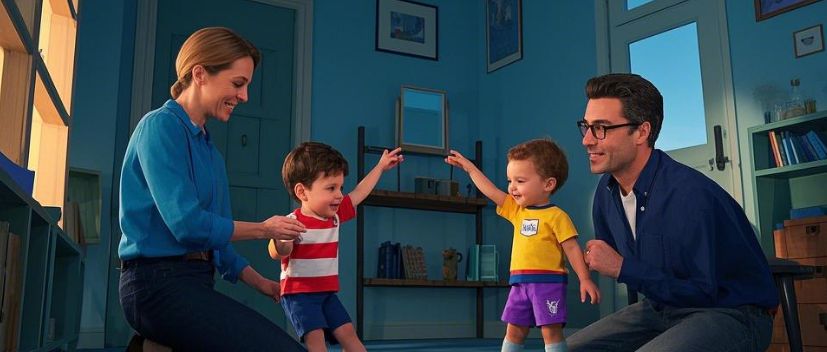Parent-child games are more than just enjoyable activities—they play a crucial role in strengthening the bond between parents and children while supporting the child’s emotional and social development. These games provide a foundation for building positive personality traits and can help children learn valuable life skills. The variety of game types and settings offers flexibility, allowing parents to tailor activities to their child’s needs and interests.
Strengthening Parent-Child Bonds
One of the primary benefits of parent-child games is the opportunity to foster strong emotional bonds. Research published in Parenting: Science and Practice (2020) highlights that quality play interactions significantly enhance parent-child attachment, promoting a secure emotional foundation for children (Becker et al., 2020). When parents engage in play, it not only strengthens the relationship but also boosts the child’s sense of security and self-esteem, which are essential for healthy emotional development.

Developing Good Character and Social Skills
Games also serve as a key tool in teaching social skills such as cooperation, empathy, and problem-solving. According to a study in Developmental Science (2022), interactive play helps children practice self-regulation, collaboration, and sharing, which are vital social skills that influence their ability to form relationships (Bureau et al., 2022). Parent-child games that require taking turns, sharing resources, and expressing emotions help children develop emotional intelligence and better manage social interactions.
Using Everyday Resources for Play
Parents can encourage meaningful play without needing expensive toys. Recent research in Early Childhood Education Journal (2021) found that children’s cognitive and creative skills develop just as effectively through simple, everyday materials such as cardboard boxes, wooden spoons, or household items (Jones et al., 2021). Using items already present in the home allows children to engage their imagination and practice problem-solving skills. Traditional folk games, too, can serve as a rich source of both fun and learning, connecting children to cultural traditions and improving their social skills.
Educational and Fun Activities
When designing parent-child games, it’s essential to strike a balance between fun and learning. A study published in Frontiers in Psychology (2021) supports the idea that games that combine entertainment with educational content enhance children’s cognitive abilities. Games involving storytelling, puzzles, or cooperative activities teach children not just how to think critically, but also how to communicate effectively and solve problems (Dunst et al., 2021). Engaging children in activities that encourage self-expression, while guiding them when necessary, fosters a deeper understanding of the world around them.

Encouraging Family Participation
It’s also crucial for families to actively participate in these games together. Family involvement in play can positively impact a child’s social development. Research published in Family Process (2020) emphasizes that when families engage in shared play, it improves family cohesion, strengthens communication, and supports the child’s emotional regulation (Morrison et al., 2020). Encouraging children to interact with siblings or extended family members through group games can help them build stronger social connections and boost their confidence.
Conclusion
In conclusion, parent-child games are a powerful tool in supporting a child's emotional, social, and cognitive development. By using everyday resources, balancing fun and education, and encouraging family participation, parents can create an environment that promotes growth, learning, and strong interpersonal relationships.
References
- Becker, M., et al. (2020). The Role of Play in Parent-Child Attachment: A Longitudinal Study. Parenting: Science and Practice, 20(3), 130-145.
- Bureau, J. F., et al. (2022). Parent-Child Play as a Predictor of Social Development in Early Childhood. Developmental Science, 25(2), e13145.
- Jones, S., et al. (2021). Creative Play with Household Items: Cognitive Benefits for Preschool Children. Early Childhood Education Journal, 49(1), 15-27.
- Dunst, C. J., et al. (2021). Educational Play and Cognitive Development in Young Children. Frontiers in Psychology, 12, 1584.
- Morrison, R., et al. (2020). Family Play and Child Emotional Regulation: The Importance of Shared Family Activities. Family Process, 59(2), 389-403.